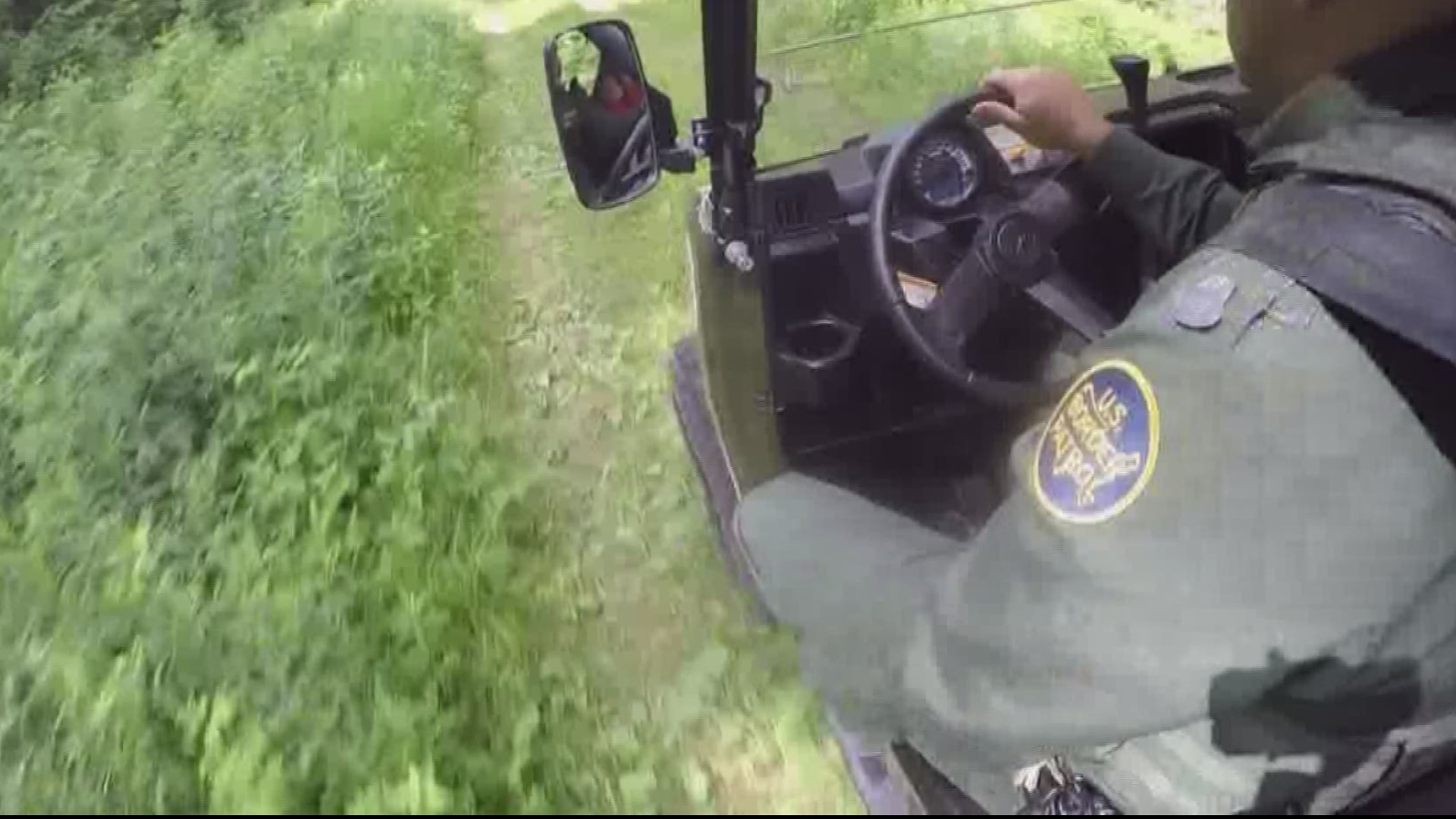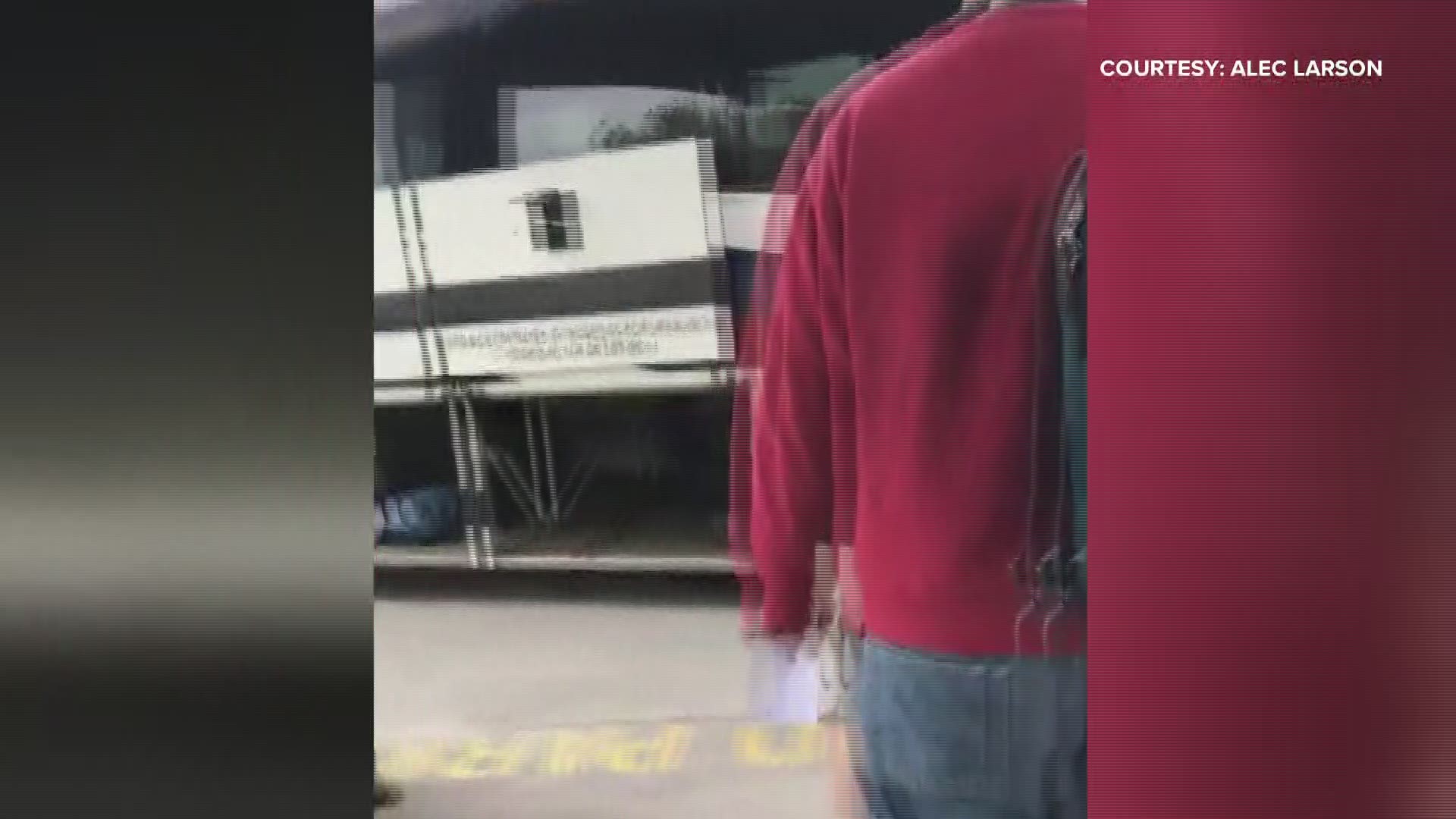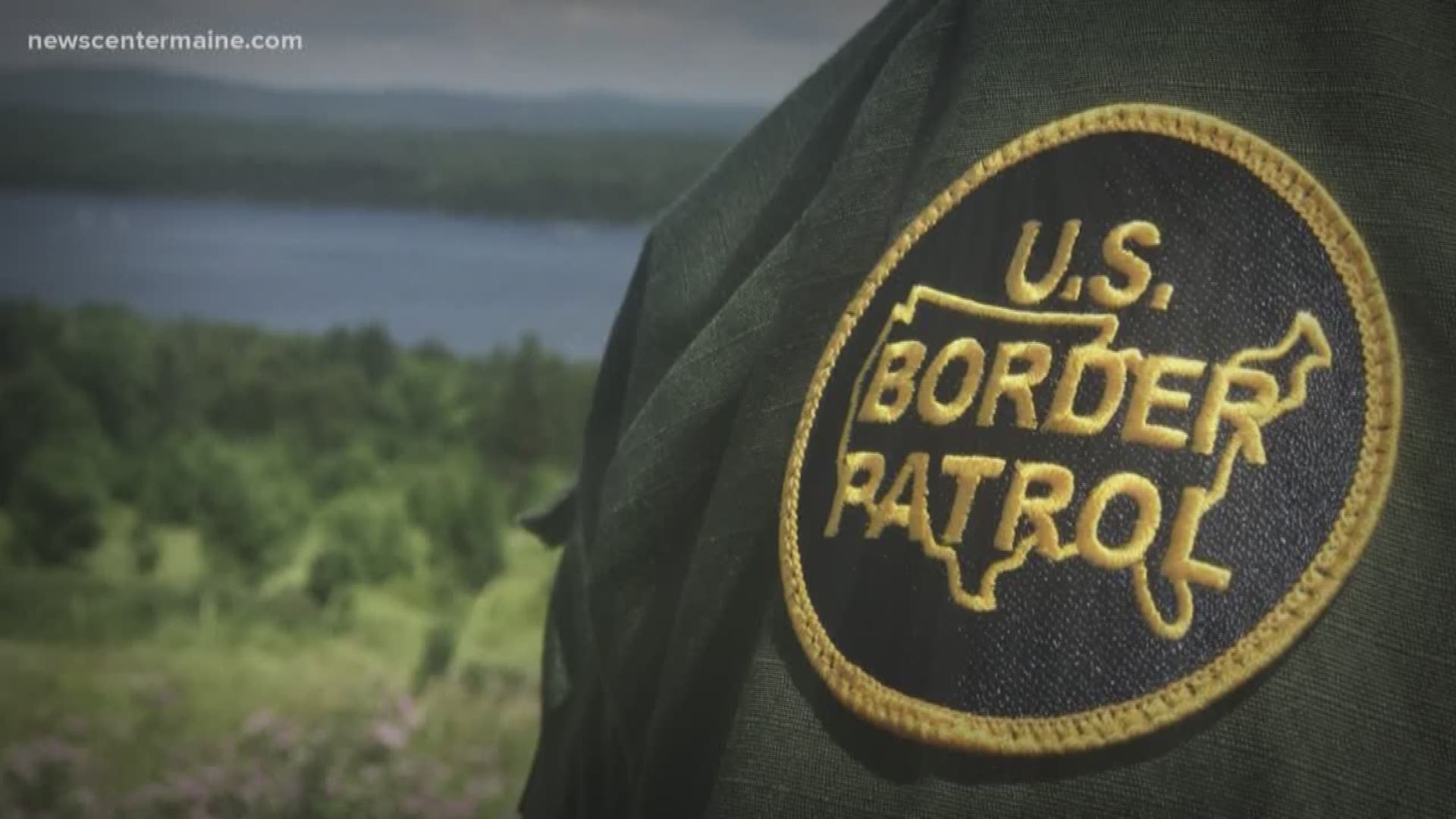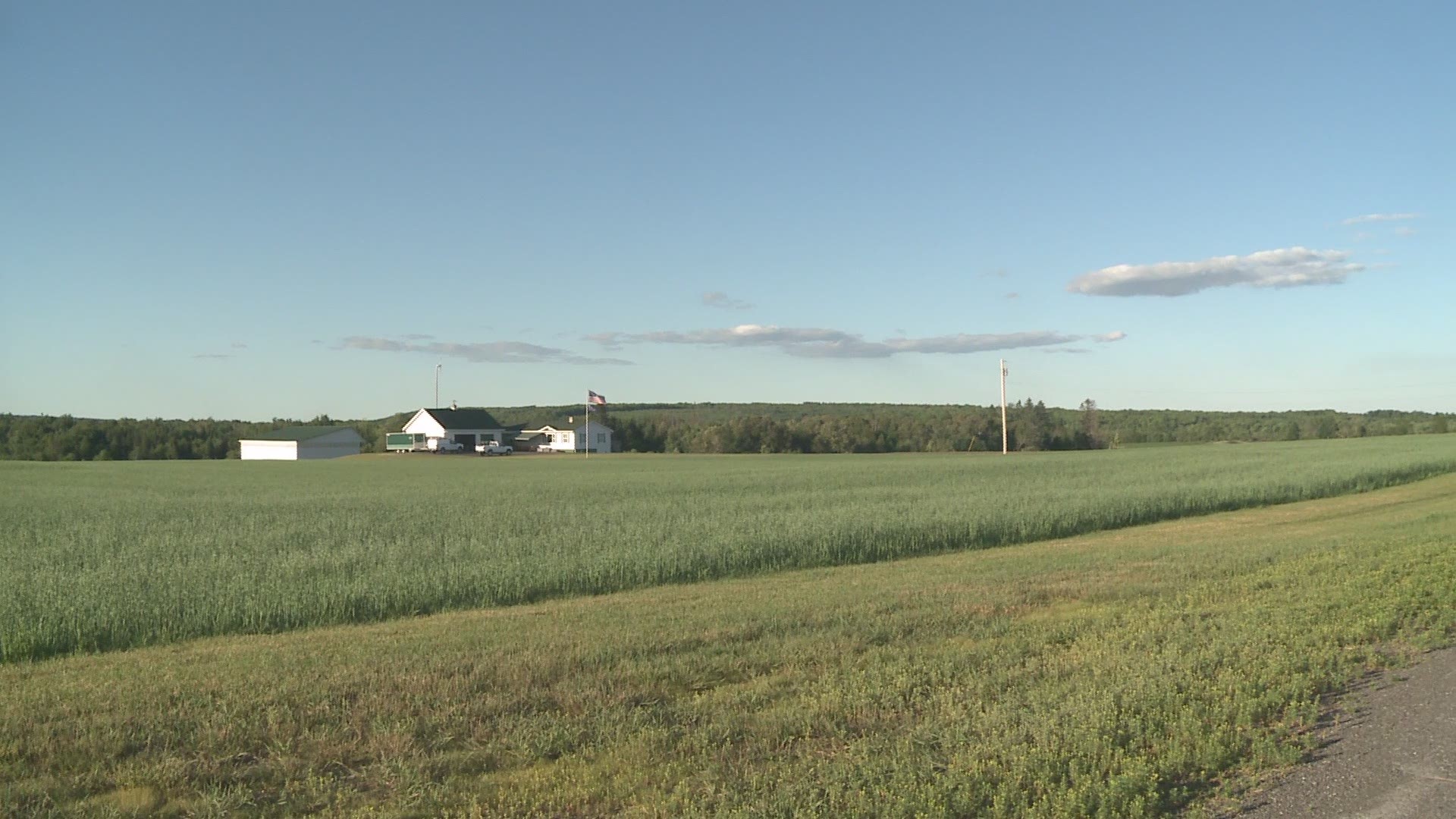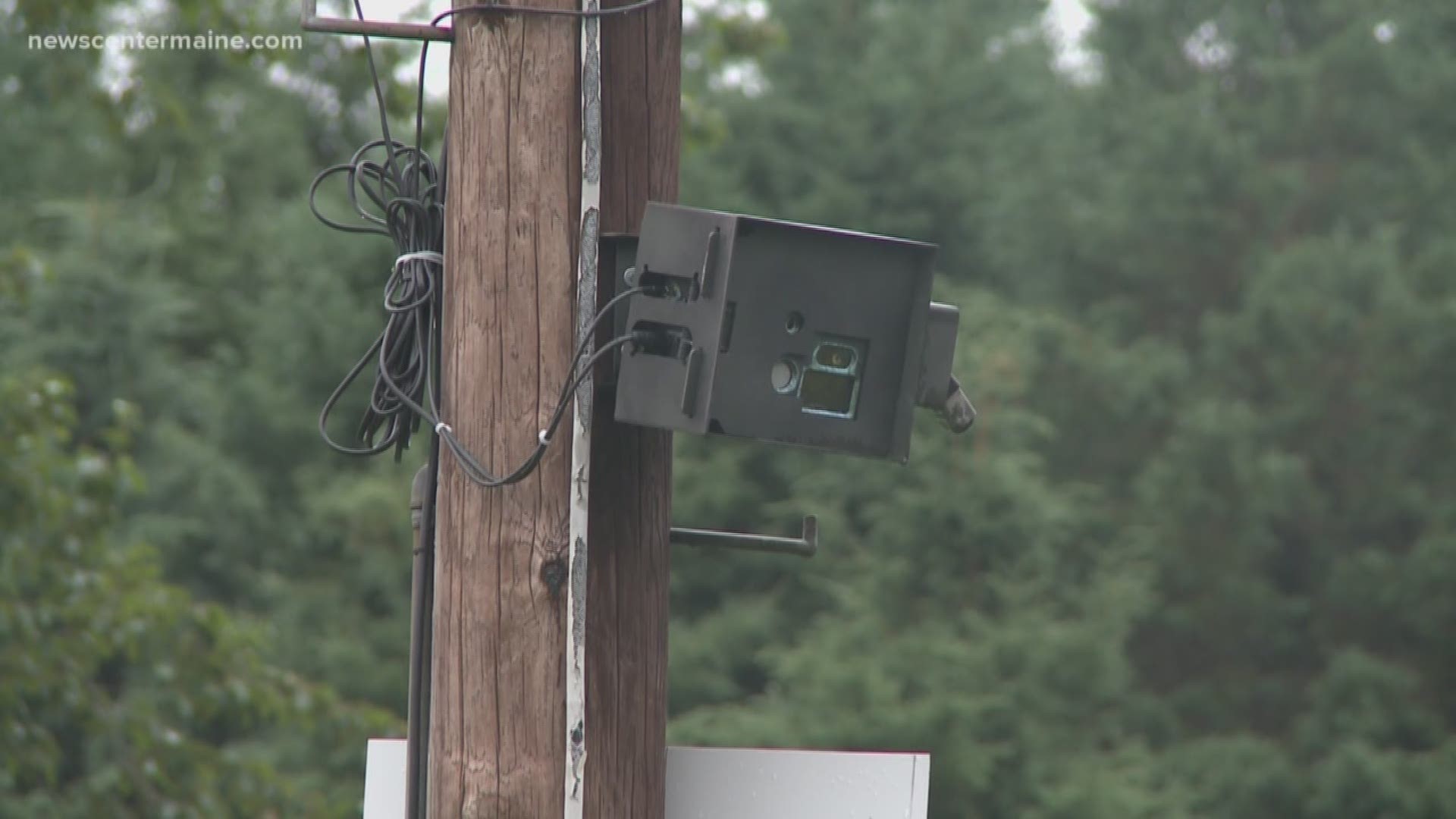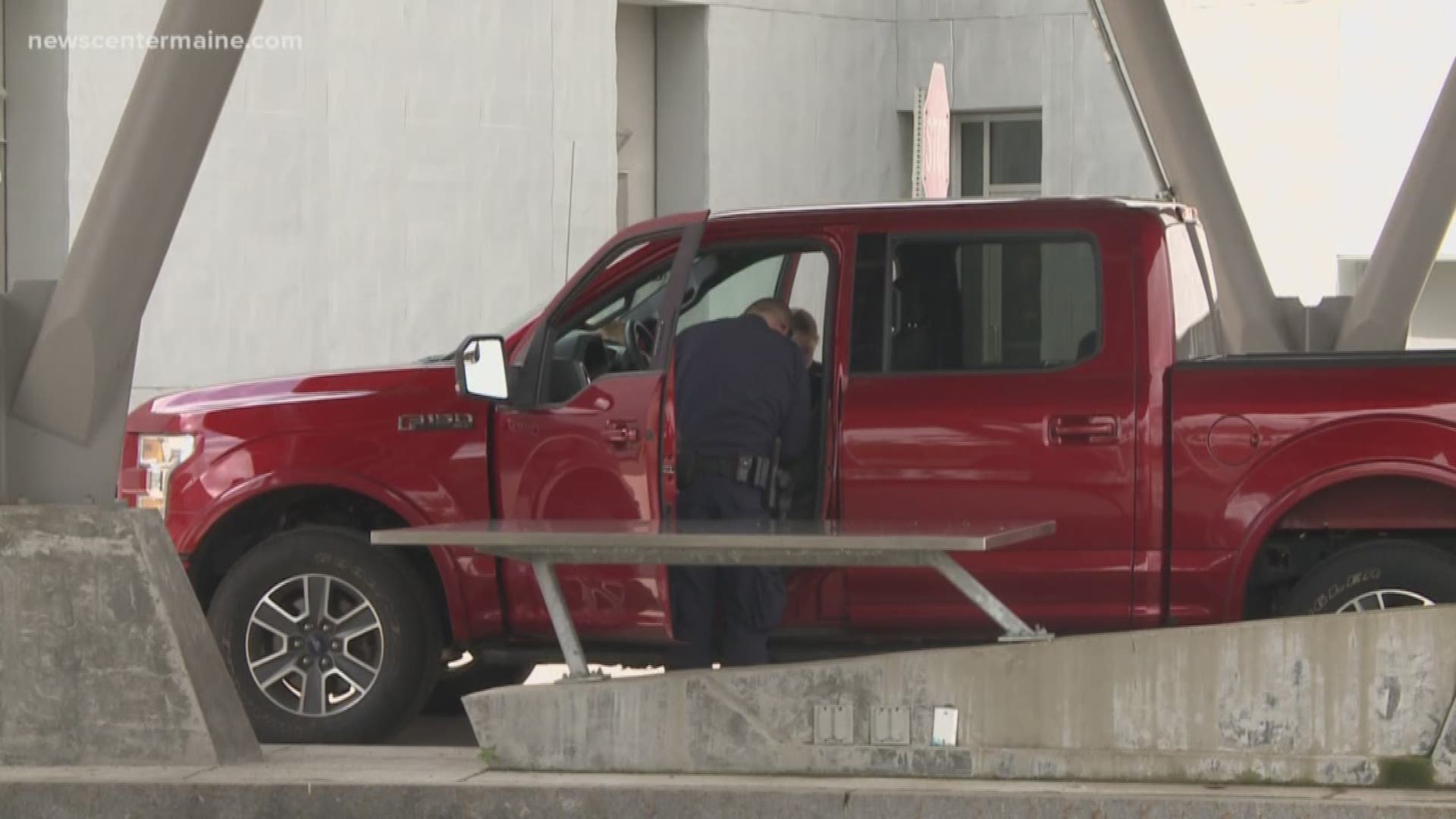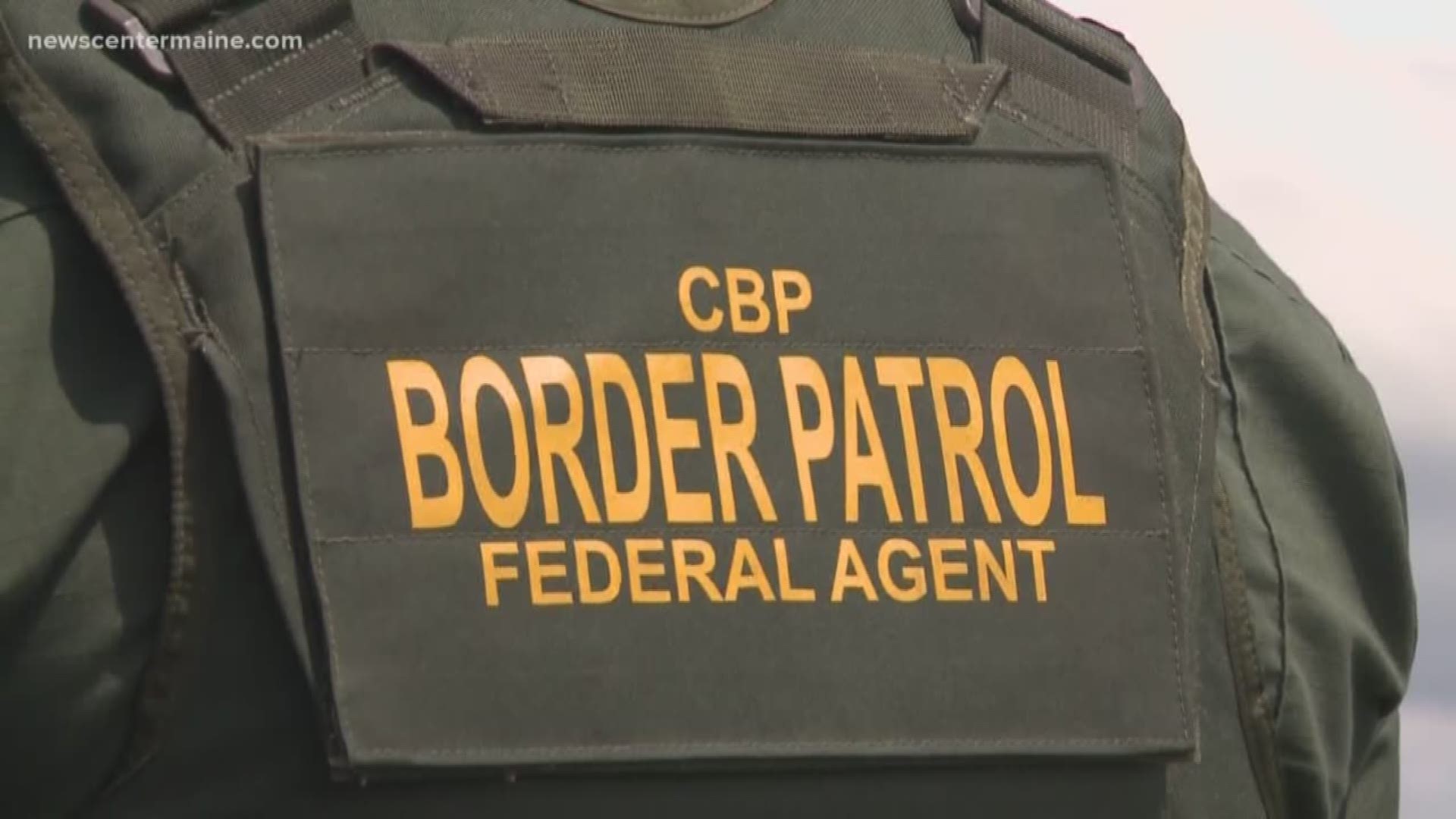The Mission
U.S. Border Patrol's mission has been to 'detect and prevent the illegal entry of aliens into the United States' since it was first started in 1924. After the terror attacks in 2001, the mission has shifted to prevent terrorists and weapons of terror from entering the country. NEWS CENTER Maine
The Numbers
Maine's Houlton Sector of U.S. Border Patrol is made up of more than 200 agents covering 611 miles of land border with Canada and 300 miles of coastline. There are a total of six stations from Rangeley to Calais and 18 ports of entry statewide.

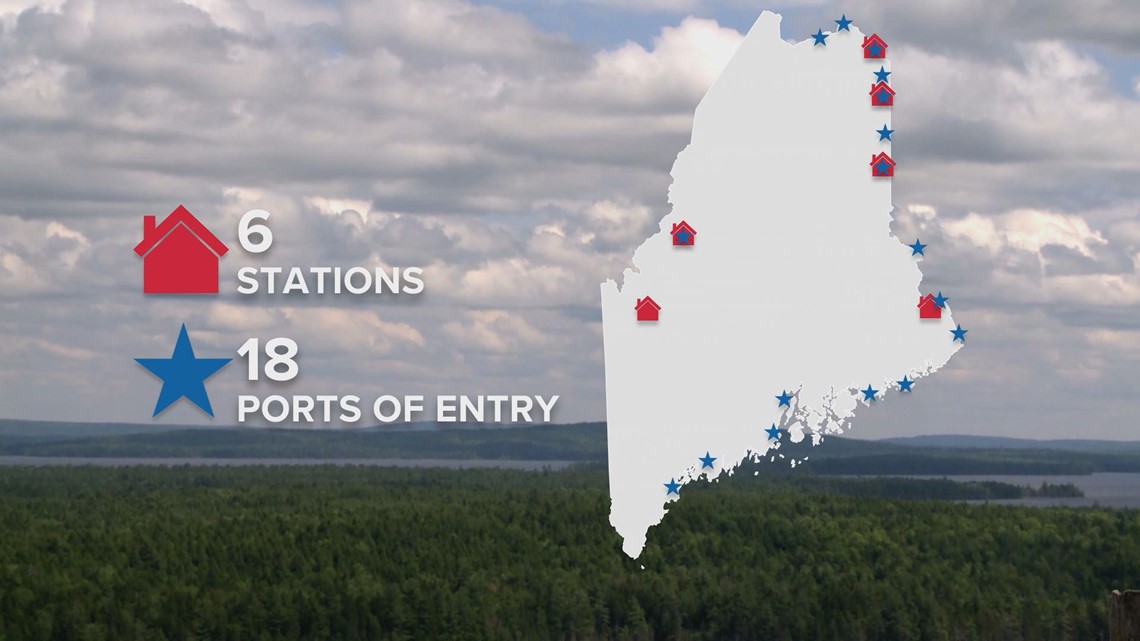
Nearly 700 people were apprehended by Border Patrol agents in Maine in 2001, according to public U.S. Customs and Border Protection data. Since then, there has been a fairly steady decline, with only 30 people apprehended in 2017.

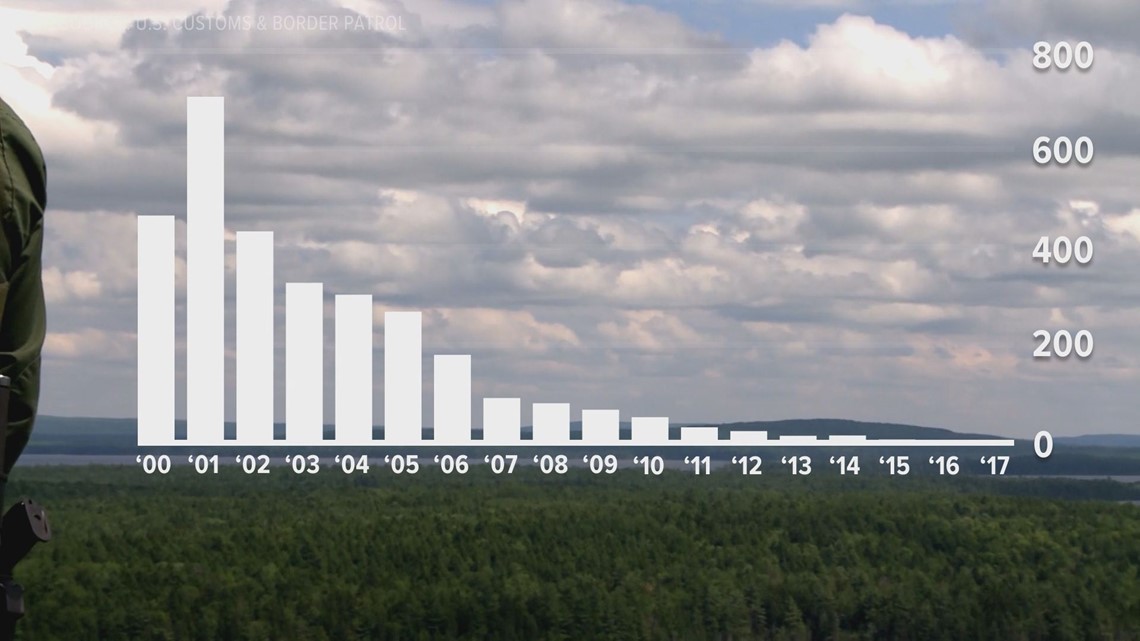
Most of those arrested for illegally entering the U.S. are actually Canadian citizens. Of the 30 people arrested by agents in 2017, 22 of them were from Canada. The rest were from France, Hungary, Dominican Republic, Colombia, and Trinidad and Tobago.

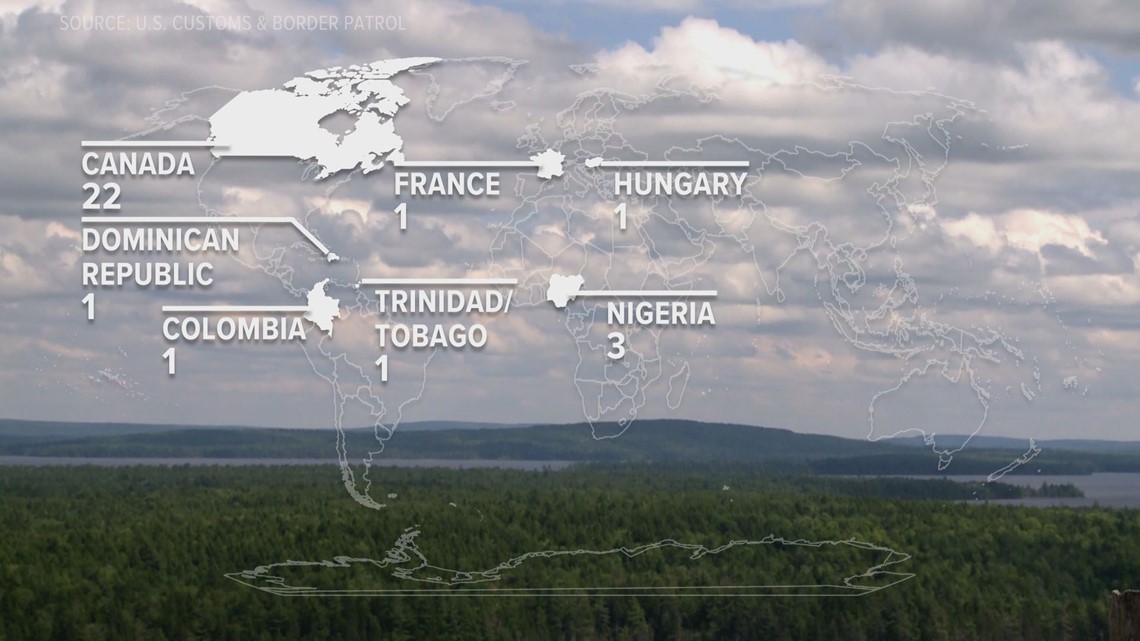
But as the number of arrests has declined, the number of agents has dramatically increased in the state. There were only 30 agents on duty in 2001. Now there are more than 200.
NEWS CENTER Maine's request for data on the frequency of highway checkpoints and transportation checks statewide was denied.
The Controversy
Activists argue that Customs and Border Protection has gone too far in its efforts to keep the United States safe. While activists have spoke out on the national stage about the separation of children and families on the southern border, recent events in Maine have prompted the Maine ACLU and Congresswoman Chellie Pingree to take on what they are calling a "ramping up" of traffic stops and checkpoints beyond the agency's scope.
One viral video taken by an activist showed Border Patrol agents at a bus station in Bangor asking riders if they were U.S. Citizens in May. That video caused an uproar on social media prompted the ACLU to file a lawsuit against Customs and Border Protection for data on how frequently they perform transportation checks in the state.
"Using that fear as a justification for abusing peoples rights, makes us all less free," ACLU Attorney Emma Bond said.
Shortly after, a traffic checkpoint along I-95 in Penobscot County raised questions about whether or not Border Patrol was intensifying its practices in the state. That checkpoint required every car to stop as agents asked if drivers and passengers were U.S. citizens. A Haitian fugitive was captured as a result, according to U.S. Customs and Border Patrol.
"I think because of peoples heightened awareness, about how are we spending our money, how are our resources being used," Congresswoman Chellie Pingree told NEWS CENTER Maine. "People are saying, 'Wait a minute, I can be stopped anywhere in the State of Maine?"
In addition to the traffic checkpoints and transportation checks, reports of agents boarding fishing boats in disputed waters off the Maine coast has drawn frustration from Canadians.
"These are all things that according to reports have been significantly ramping up," Bond said.
Border Patrol agents regularly patrol inland waterways, including the area of East Grand Lake, where Chief Harmon told NEWS CENTER Maine agents are looking to stop the smuggling of drugs and weapons by boat.
"The territorial waters of the United States are the territorial waters of the United States," Harmon said. "It's not like 'Pirates of the Caribbean.'"
Several years ago, agents captured someone crossing in the same area with ties to a terrorist organization, according to Harmon.
That is very rare for the region though. Most of the arrests made last year were of Canadian citizens.
"I mean if you're here illegally, you're prosecuted the same. It wouldn't matter if you're a Canadian citizen that entered the United States, you're prosecuted, or if you're person from Paraguay," he said.
The History
The mission of the U.S. Customs and Border Protection has rapidly evolved over the last two decades. The turning point: the Sept. 11, 2001 terror attacks.
"When we arrest a terrorist, we've done our job, no matter where we are in the United States, that's our goal to prevent them from entering," Division Chief of Maine's U.S. Border Parol Houlton Sector, Dennis Harmon, said.
When it was first founded, the Houlton Sector was primarily focused on preventing illegal immigration as well as stopping alcohol from being smuggled into the country during the years of prohibition.
Harmon said that although a lot has changed, his team's activities in Maine is very similar to what it was when it was first found in May 1924.
Archival photos of traffic checkpoints and bus checks date back to the 1950s in Maine.

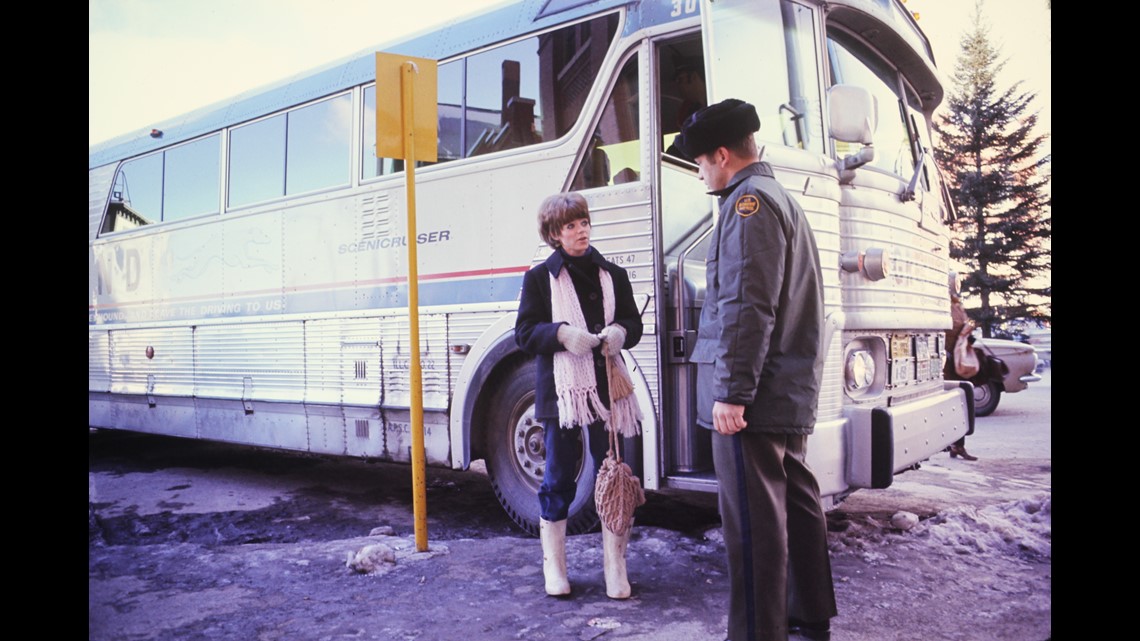
Despite recent videos and social media posts accusing U.S. Border Patrol of "ramping up" its operation in Maine, Harmon told NEWS CENTER Maine that their practices have been in place for decades and are entirely legal.
Current law allows agents across the country to stop and question/search for people without a warrant within 100-miles of the nation's border. Maine is the only state where that Border Zone covers the entire state.
When asked how they determine whether or not to further question a person based on their citizenship, he admitted there were no set rules in place--instead it is dependent on what they have learned over the years.
"It would be impossible for me to sit there and be 'Okay, here is the checklist that has to be checked, it's just years of experience,'" Harmon said.
The Border Zone
The 100-mile radius around the entire United States known as the 'Border Zone' has been called into question by lawmakers—including Maine Democratic Congresswoman Chellie Pingree.
Pingree has co-sponsored legislation to limit U.S. Border Patrol's reach in the state by narrowing the zone from 100 miles to 25 miles.

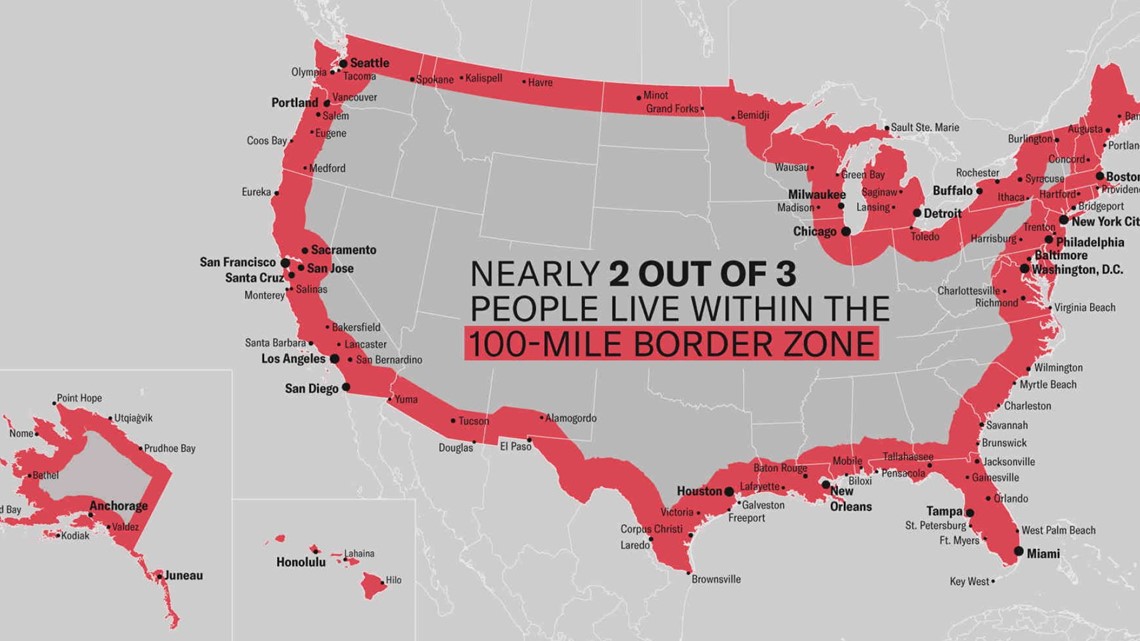
Maine is one of only a handful of states where the zone covers the entire state. It gives Customs and Border Protection the right to stop, question and search people within that radius without a warrant.
Pingree, who recently traveled to the country's southern border, said the need is more urgent in that part of the country where tens of thousands of people are crossing into the U.S.
"We have serious problems on our southern border. We need more Border Patrol agents," Rep. Pingree said. "In Maine, we have concerns and we want to be safe and secure, but it's disproportional based on the number of people who actually cross our border illegally who are causing real problems here."
Republican Congressman Bruce Poliquin recently praised Customs and Border Protection in Maine and vowed to continue to support its efforts. A spokesperson for Poliquin would not comment on Pingree's proposed legislation directly, but provide a statement.
"Thank you to the men and women of our Border Patrol who work to keep Maine safe," Poliquin said in the statement. "As a member of the Northern Border Caucus, I'm proud to support all those who protect our homeland."
Living Under Watch
For Mainers living on the Northern Border, a lot has changed over the years when it comes to the level of security.
"I can't get to my house without being photographed. There's no way,” resident Blaine Lincoln said. "There's a lot of cameras around. A lot of Border Patrol agents."
The cameras are scattered all along the 611-mile border. Most of them function like a game camera by taking photographs when they since motion. Those are then sent immediately to a dispatch center.

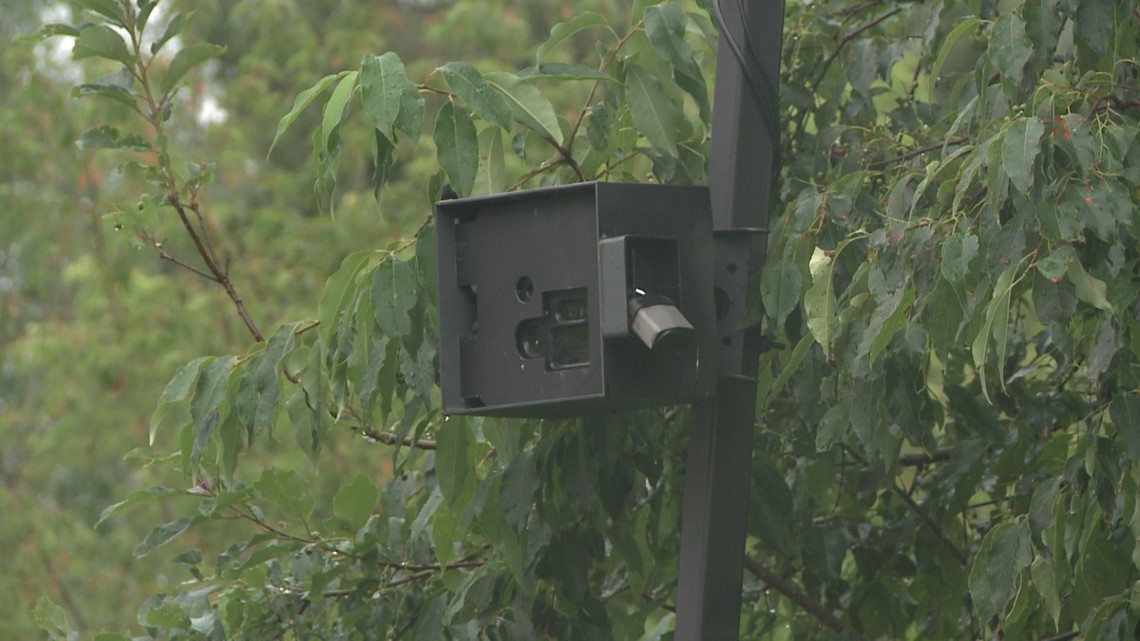
“Through the use of technology we're able to cover multiple areas with limited resources we have,” U.S. Border Patrol Division Chief Dennis Harmon said.
Lincoln grew up on his family’s farm in Houlton just feet from Canada. He said he and his father often crossed over the border on a regular basis.
"The Canadian road was always smoother so we want over into the Canadian road to travel down to our far farms and then over the years they made it so you don't do that any longer,” he said.
Gates, cameras and regular patrols in areas like where Lincoln lives—that have been prone to illegal crossings in the past.
Chief Harmon said they are dependent on the technology as well as strong relationship with residents to help keep an eye on things. He says they don’t have enough resources to cover every nook and cranny of the border with agents.
“We are out there. We're working every day to keep America safe. I mean that's our goal,” Harmon said.
That is exactly why residents like Patty and Wendell Hersey say Border Patrol is crucial to the region and the country.
“The people that get up in arms about it, they are just doing their job. They are here to protect us, it’s just part of their job,” Patty Hersey said.
Seeing agents patrolling the road by their home—just about a mile to the nearest port of entry—is nothing out of the ordinary.
Hersey said they have also seen traffic stops and transportation checks on occassion for as long as she can remember.
“It's just our way of life I guess,” she said.
A Perception Problem
Maine's Customs and Border Protection officials admitted they have had a 'perception' problem in recent years.
"People do feel as though they're being scrutinized unnecessarily," Corey McPhee said.
McPhee is the Port Director at U.S. Customs and Border Protection's port of entry in Calais. He is the fourth generation in his family to serve, and the third to take on the title of director.
He said a lot has changed over the years—including an increase in the level of scrutiny facing his officers.
"My people are the first people they see when they enter this country," McPhee said.
When McPhee started 18 years ago, the port was one of the top 50 busiest in the country. Since then, the number of personal vehicles crossing the border has decreased 47-percent from 1.4 million in 2000 to 739,000 in 2017.
The turning point: the terror attacks of September 11, 2001. McPhee said that dramatically changed the way the entire agency operates. Technology has been a large part of the screening process, allowing officers to quickly identify individuals who could pose a threat to national security.
"It's very important for us to know who is coming and going from the United States," McPhee said. "All you have to do is look at the events taking place around the world and you can see why counter terrorism is our number one priority."
That is not an excuse, according to the Maine American Civil Liberties Union who has sued the agency.
"They claim the authority to search anyone and that kind of claim invites abuse. It invites targeting disadvantaged populations or minority populations," Emma Bond with Maine ACLU said.
The Field Operations division of CBP has not fallen under the same level of scrutiny as Border Patrol, but McPhee said it is important for people to realize their singular goal is to protect our country.
"It doesn't matter what your nationality is, what your ethnic background is, our checks are all the same," McPhee said.

